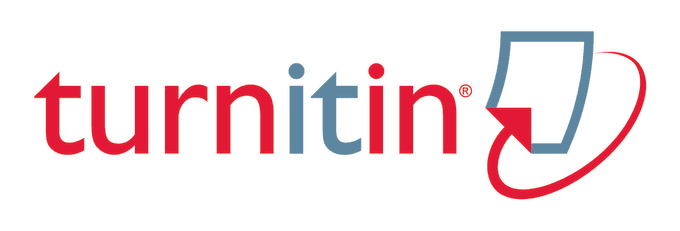Peer Review Process
Manuscripts submitted to COMMENTATE: Journal of Communication Management will undergo a selection and assessment process by the Board of Editors to ensure their accordance with the writing guideline, focus, and scope, and that they are of excellent academic quality. The manuscripts will be reviewed using the double-blind peer review method to ensure that the author and reviewer both do not know each other's identities.
Desk Review
At the desk review stage, manuscripts will be examined to ensure that they have met the writing guideline, focus, and scope with excellent academic quality as well as similarity or plagiarism check under 20%. If they do not meet the conditions, the author will be allowed to revise their manuscript according to the given criteria. However, there is also the possibility that the manuscript will be directly rejected. The author will get notification of the manuscript, whether continued to review or rejected, within 2 weeks.
Article manuscripts will be rejected if:
- It is not matched with the journal scope.
- It does not follow author guidelines and is not willing to make adjustments.
- It has fundamental methodological errors.
- It indicated more than 20% of plagiarism
- It contains topics or discussions that promote cigarettes or cigarette companies.
Peer review
When the manuscript has passed the desk review stage, it will then be delivered to two reviewers who are experts in the field of the submitted manuscript. Manuscripts that did not successfully pass the desk review process will not proceed to this stage. At this stage, the author can not withdraw the manuscript. The review process will be done within 4-6 weeks. The author will be notified within 2 months since the submission date. If the author does not receive any notification within 3 months, the author may consider manuscript withdrawal and submit it to another journal.
Reviewer’s decision
The reviewers will provide the following recommendations:
- Accepted; means that the manuscript is acceptable for publication
- Revision required; means that the manuscript is acceptable for publication once it is revised in response to the reviewers’ concerns
- Resubmit for Review; means that substantive inadequacies in the manuscript, such as data analysis, the main theory used, and rewriting of paragraphs, need to be revised and the manuscript needs to be reviewed for another round
- Resubmit elsewhere; means that the manuscript does not accept for the sensor journal and inadequate quality, it should be submitted to some other journal
- Rejected; means that the manuscript is not acceptable for publication or the given reviews relate to very basic issues
The reviewer’s decision will be considered by the Board of Editors to determine the ensuing process of the manuscript. The author will receive the notification’s result maximum 6 weeks after initial date of review. If the results are revision required or resubmit for review, the editor will ask the author whether to revise or withdraw the manuscript.
Revision Stage
Once the manuscript has been received with notations of minor or major revisions, it will be returned to the author with a review summary form. For manuscripts accepted with major revisions, authors are allotted 4 weeks to revise. Whereas for manuscripts accepted with minor revisions, 2 weeks is allotted for revision. When returning the revised manuscript, the author is required to fill in and attach the review summary form. If the author does not submit a revised version of the manuscript more than 1 month after the deadline, the manuscript is automatically rejected.
Final decision
At this stage, the manuscript will be re-evaluated by the Board of Editors to ensure that the author has revised in response to the reviewers’ concerns. In this final decision, the manuscript may still be rejected if the author does not seriously conduct the revisions necessary or refuses to make suggestions of improvements provided by the reviewer without a logical basis.
Proofread
Once the manuscript has been deemed acceptable by the Board of Editors, it will undergo a proofreading process to maintain linguistic quality.
Publication confirmation
At this stage, the final layout of the manuscript will be sent to the author to ensure that the content is by the author’s writing. At this stage, the author may revise any typographical error found in the final manuscript. Once confirmation from the author is given, the Editorial Secretary will process the manuscript for online publication on the website.
Retraction
Journal Editors should consider retracting a publication if:
- It contains infringements of professional ethical codes, such as multiple submissions, bogus claims of authorship, plagiarism, fraudulent use of data, etc.
- It contains major errors (e.g. miscalculations or experimental errors) or the main conclusion is no longer valid or seriously undermined as a result of new evidence coming to light of which Authors were not aware at the time of publication.
Journal Editors will determine based on investigation (maximum 2 weeks) whether a retraction is required and in such cases will act in accordance with COPE’s Retraction Guidelines. Any report or request for retraction will be emailed to the editorial board at [email protected].










